Environmental impact of CircoFloor
A circular floor construction with up to 4.9× lower environmental impact than traditional systems.
Discover the results of our environmental study and see how CircoFloor is improving.
Why install circular floors?
A circular floor construction offers more than just a lower environmental impact.
Less waste
Traditional floors end up as construction rubble. CircoFloor can be completely dismantled and reused.
Lower costs
Thanks to reuse, you avoid high demolition and waste costs, which can quickly rise with traditional floors.
Future-oriented
Circular floors are perfectly aligned with future regulations and sustainable construction.
For the next generation
A circular floor construction not only saves raw materials and emissions today, but also ensures a better living environment for the next generation.
Adaptable
A circular floor can easily be adapted or expanded without demolition work, so that your building can evolve with new needs.
Analysis without concrete slab and floor finish
For this comparison, the impact of the concrete floor slab and the finishing layer (laminate/parquet) were removed from the calculation.
The remaining materials show how much the core of each flooring system weighs on the environment.
Insulating screed with screed
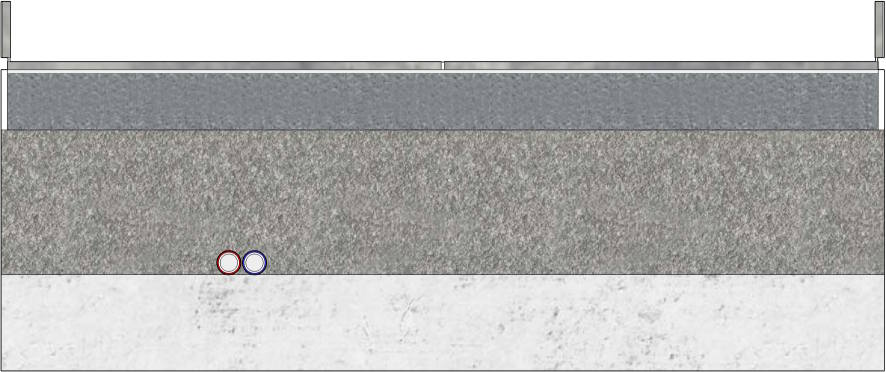
Environmental impact without concrete & laminate
2,26× worse for the environment
- EPS screed as a filling layer
- Cement screed with reinforcement mesh
- No reversibility
Sprayed PUR with screed
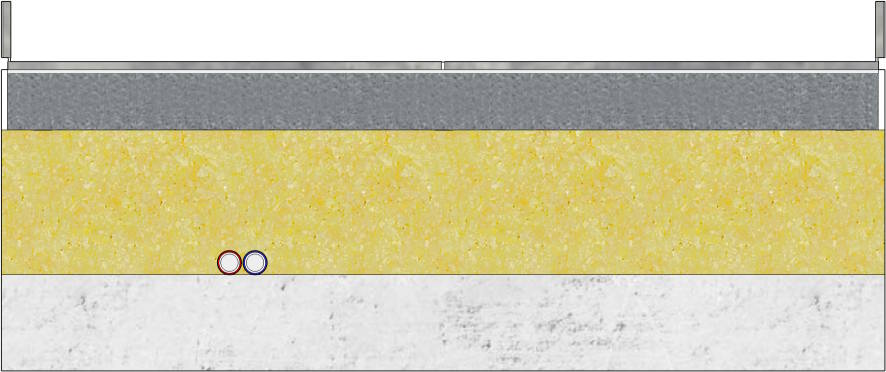
Environmental impact without concrete & laminate
4,92× worse for the environment
- Sprayed PUR insulation
- Cement screed with reinforcement mesh
- No reversibility
Filling layer + insulation with screed
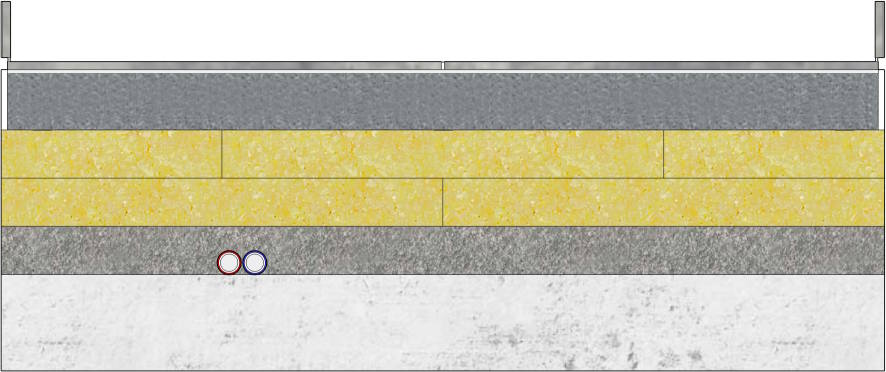
Environmental impact without concrete & laminate
2,62× worse for the environment
- EPS screed and XPS boards
- Cement screed with reinforcement mesh
- No reversibility
CircoFloor
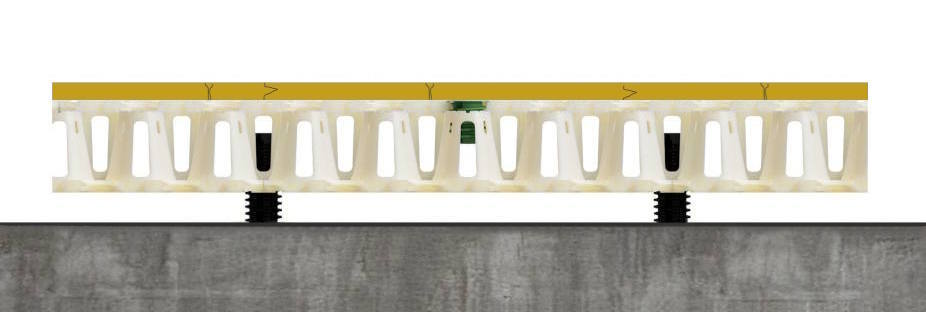
Environmental impact without concrete & laminate
Best score
- Circular, demountable structure
- Cork granulate & OSB plating
- Fully reversible
CircoFloor reduces the environmental impact by up to 4.9× compared to the most polluting traditional screed floor construction with sprayed PUR.
Analysis including concrete slab and floor finish
This calculation takes into account all components – from the reinforced concrete slab to the floor covering.
Insulating screed with screed
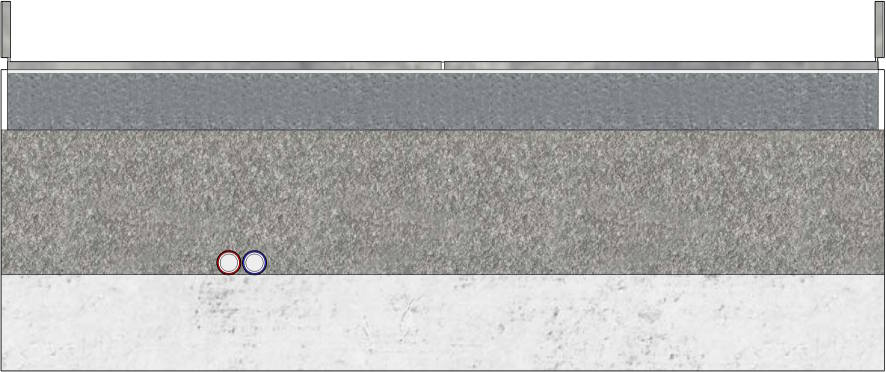
Full environmental impact
1,10× worse for the environment
Filling layer + insulation with screed
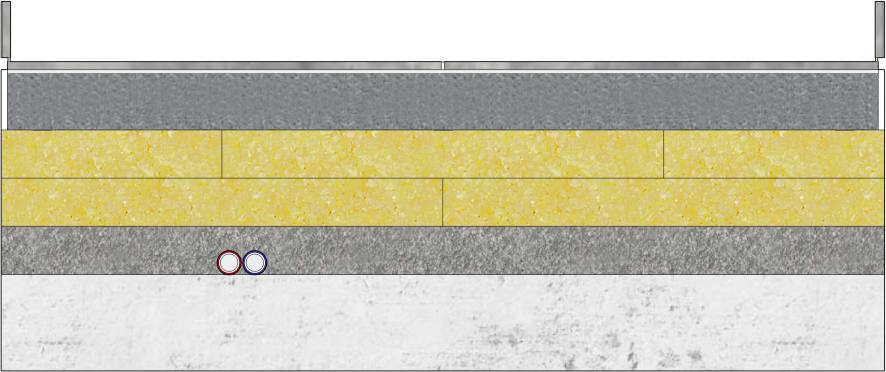
Full environmental impact
1,13× worse for the environment
After 1 time reuse: initial + re-placement
Both the concrete slab and the floor covering (laminate/parquet) are reused. With traditional construction, only the core (screed and insulation) is purchased again; with CircoFloor, everything is reused.
Insulating screed with screed

1,28× worse for the environment
Sprayed PUR with screed
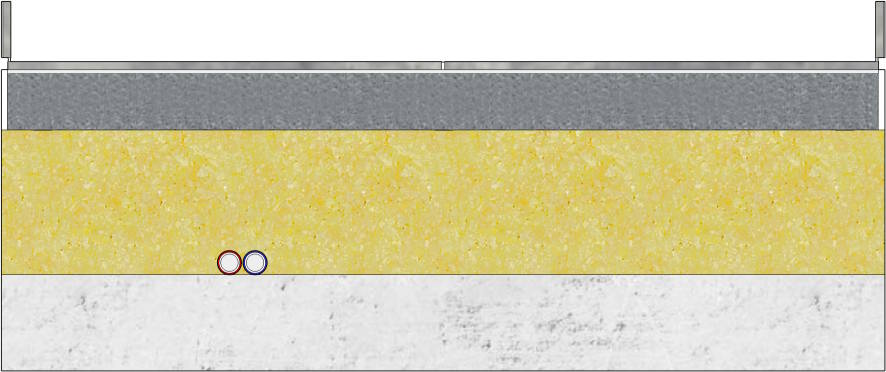
1,71× worse for the environment
Filling layer + insulation with screed

1,34× worse for the environment
CircoFloor
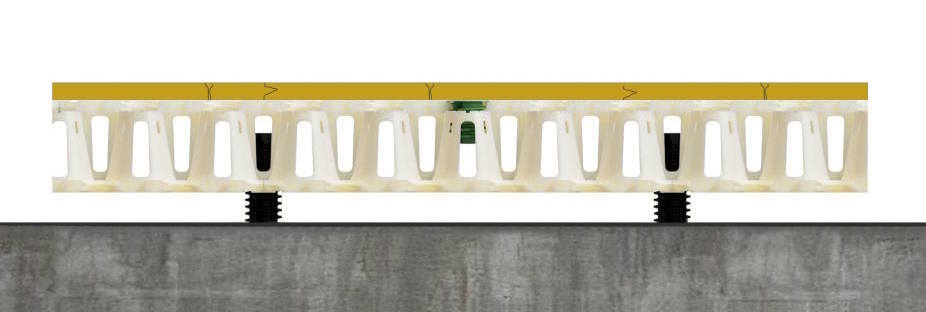
Best score
Reversibility & circularity
Besides its low environmental impact, CircoFloor excels in reversibility. Below, you can see how CircoFloor compares to traditional construction methods when dismantled and reused.
-
✗
Insulating screed with screed: Cement-bonded and bonded layers permanently bond to the floor slab and technical components; selective disassembly is not possible, and everything ends up as rubble.
-
✗
Sprayed PUR with screed: PUR adheres to concrete and pipes; removing it without damage is virtually impossible. Disposal is complex and expensive.
-
✗
Filling layer + insulation with screed: Insulation boards often deform after use; an underlying adhesive filler layer remains that holds everything in place.
-
✓
CircoFloor: Modular frame with adjustable feet, loose-fill granular fill, and screwed plating. All components remain intact, are easy to disassemble and reuse, and utilities remain accessible. This makes the floor truly circular.
EPD & Totem
An official EPD for CircoFloor cannot be requested until early 2026. From that point on, the complete results can also be added to Totem, the Belgian tool for sustainable building evaluations.
In the meantime, an environmental study can already be requested, so that you can gain insight into the impact and circularity of your floor construction today.
Choose a circular future
CircoFloor combines an extremely low environmental impact with complete reversibility.
With up to 4.9× less material impact and up to 1.31× better total environmental score than traditional screed constructions, you are ready for the future.







